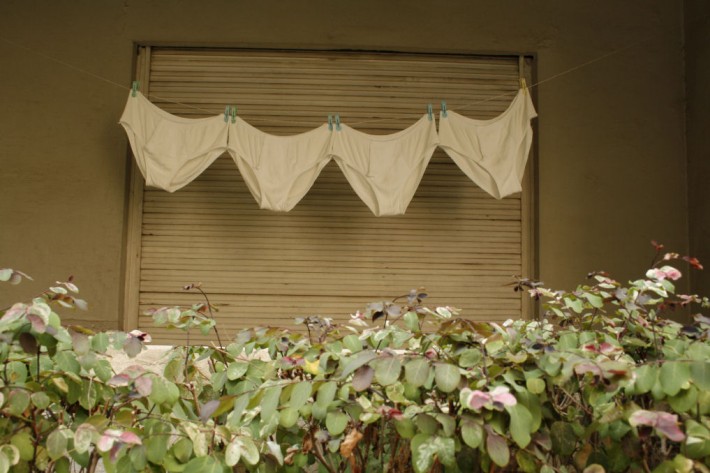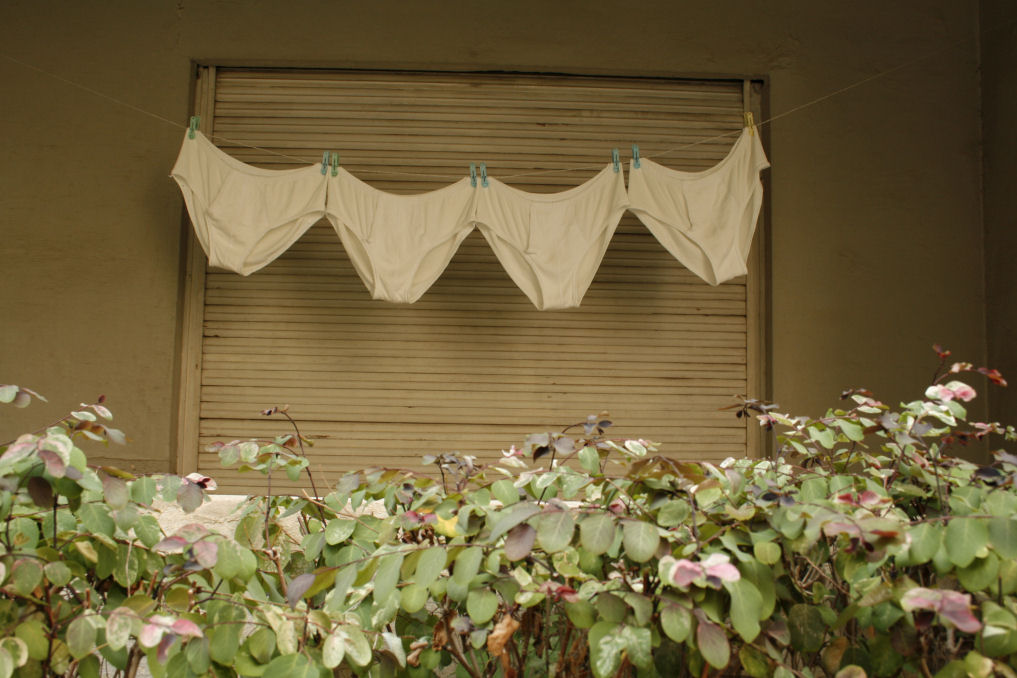Are we OK with stealing? Stolen underwear and media theft

Imagine someone broke into your home, snuck into your bedroom, found your underwear drawer, and stole all your underwear. The thieves then take your underwear and tape it to the side of a building on the busiest street in your city. A public forum is held under a topic of “what people think of your underwear”, where they vote on style, cleanliness, quality, and provide popular opinion about what your underwear says about who you are as a person.
Stealing your unmentionables
This may sound ridiculous, but it is what we are seeing happen in the recent cyber-hacks into individual and corporate data. Hackers are stealing other people’s information and making that information publically available. Society is then re-posting that information and having a wide debate about what it means.
Our collective judgement of the theft of this information seems to depend on the type of information and who it is stolen from. Sharing stolen information from governments by the likes of Julian Assange’s Wikileaks seems OK, perhaps due to an inherent distrust of political secrets. When business emails, financial information and details about movie releases get stolen from large corporations like Sony, we consider the contents fair game. Mashable for example promises to share “7 secrets from the Sony hack: Scripts, salaries, employee romances and more”.
Other information seems not OK to share, like the nude celebrity photos stolen as part of the Apple iCloud hack earlier this year. When people started sharing the photos around, the media publicly shamed those exposing personal vulnerabilities. The hypocrisy is thinly veiled. CNN talks about security in an article about the theft with “5 Things to know about the celebrity nude photo hacking scandal”, even as links to articles below the story tantalise us with “Caught on Camera” and “20 Photos Kim Kardashian Doesn’t Want You to See”.
Making it OK
It is as if the availability of free information gives us a sense of entitlement to whatever we can see, regardless of the source. If someone stole a physical object like a stereo or jewellery (or underwear), most people would have concerns about sharing it with others (especially underwear). If I try to give away a ring which everyone knows is stolen, I would be considered a thief even if I did not steal the ring myself.
We convince ourselves that looking is not wrong so long as someone else stole it first. If the trusted media is reporting the story, then it must be OK to look. We even play with language to make it OK. Like changing the name of global warming to climate change, we call data theft a “leak”, as in “I’m looking at the leaked information” rather than “I’m perusing these stolen goods.”
Anything anyone can find out about you is fair game. We accept criminal behaviour as par the course and blame the victims for not keeping the information safe against increasingly sophisticated attacks. It is expected that someone will try to steal your information, and if they are successful, the general population has a right to that information if it is juicy enough.
Are we OK with stolen goods?
I usually use this blog to talk about psychological truths and social science research so we can all get more out of life. As I watch the media push corporations’ dirty laundry through my news feed, I considered talking about how our need to know other’s failings gives us comfort with our own perceived deficiencies. I also thought about how we use defensive mechanisms to justify illegal behaviour.
But instead, I simply ask if collectively we are OK looking at other people’s dirty laundry. Some would say that if we find something inappropriate in the information like an affair or a shady business deal, than the theft, disclosure and promotion of the stolen goods is justified. Others may say once the dam has broken, it all becomes fair game.
Whether we are with the media who posts the articles or we are the consumer who clicks on the links, nothing will change the fact that society has accepted it is OK to deal in stolen goods. We have decided it is OK to participate in theft.
I suppose that is a reality we will have to accept. I just hope you keep your own underwear drawer under lock and key.

